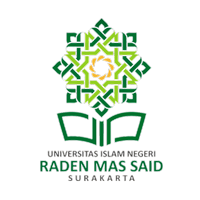Abdullah, A., & Mahmud, S. N. D. (2024). Applying TPACK in STEM Education towards 21-st Century: Systematic Literature Review. International Journal of Academic Research in Progressive Education and Development, 13(1), 1014–1032. https://doi.org/10.6007/ijarped/v13-i1/20667
Aisy, A. R., Palupi, W., & Pudyaningtyas, A. R. (2022). Pengaruh Pembelajaran Berbasis TPACK terhadap Kemampuan Bahasa Ekspresif Anak Usia 5-6 Tahun di TK Al-Islam 4 Surakarta. Early Childhood Education and Development Journal, 5(3), 265–275. https://digilib.uns.ac.id/dokumen/detail/93931/%0Ahttps://digilib.uns.ac.id/dokumen/download/93931/NTQ4NDQx/Pengaruh-Pembelajaran-Berbasis-TPACK-terhadap-Kemampuan-Bahasa-Ekspresif-Anak-Usia-5-6-Tahun-di-TK-Al-Islam-4-Surakarta-LAMPIRAN.pdf
Aulia, N. N. A., & Subandiyah, H. (2023). Pengaruh Pembelajaran Berdiferensiasi Berbasis TPACK Terhadap Hasil Belajar Mengidentifikasi Dan Meringkas Teks Eksplanasi Siswa Kelas VIII SMPN 42 Surabaya. Bapala, 10, hlm 151-162.
Cahyani, A. M., Azis, S. A., & Paida, A. (2024). Pengaruh Pendekatan Technological Pedagogical Content Knowledge (TPACK) Berbasis Youtube Terhadap Keterampilan Menyimak Dongeng. JPSS: Jurnal Pendidikan Sang Surya, 2(2), 306–312.
Kurniawan, A., Sudiyana, B., & Nurnaningsih. (2024). Muatan Kemahiran Berbahasa Indonesia Dalam Media Website Sebagai Penguatan Pembelajaran Berbasis Technological Pedagogical and Content Knowledge Indonesian. Jurnal Skripta, 10(1), 42–56.
Kusbandiyah, A. (2020). Improving Class V Students’ Indonesian Language Learning Outcomes Using the TPACK Approach. Social, Humanities, and Educational Studies (SHEs): Conference Series, 3(3), 827. https://doi.org/10.20961/shes.v3i3.46073
Li, M., Vale, C., Tan, H., & Blannin, J. (2024). A Systematic Review of TPACK Research in Primary Mathematics Education. In Mathematics Education Research Journal (Issue 0123456789). Springer Netherlands. https://doi.org/10.1007/s13394-024-00491-3
Mardhiati, A. (2023). Technological, Pedagogical, and Content Knowledge (TPACK) untuk Penguasaan Konsep dan Kemandirian Belajar Bahasa Indonesia Siswa. DIDAKTIS: Jurnal Pendidikan Bahasa Dan Sastra Indonesia, 1(2), 65–70. https://doi.org/10.33096/didaktis.v1i2.328
Marisa, D., & Rindaningsih, I. (2025). Optimizing TPACK in Learning in the Digital Era: Systematic Literature Review. Systematic Literature Review. Aslim: Journal of Education and Islamic Studies, 2(1), 75.
Melia Astiana, Maya Malinda, Anny Nurbasari, M. M. (2021). Research Trends in Technological Pedagogical Content Knowledge (TPACK): A Systematic Literature Review from 2010 to 2021. European Journal of Educational Research, 10(4), 1907–1918.
Melyana, K. T., Wahidy, A., & Utami, S. A. (2025). Pengaruh Video Animasi Berbasis Tpack Terhadap Kemampuan Menyimak Siswa Mata Pelajaran Bahasa Indonesia Kelas Ii Sd Negeri 30 Palembang. Pendas : Jurnal Ilmiah Pendidikan Dasar, 10(2), 336–350. https://m.entertain.naver.com/home/article/108/0003338187
Mishra, P., & Koehler, M. J. (2006). Technological Pedagogical Content Knowledge: A Framework for Teacher Knowledge. Teachers College Record, 108(6), 1017–1054.
Noviyanti, K., Amelia, K. R., & Puspita, Y. (2024). Penerapan Pendekatan TPACK untuk Meningkatkan Aktivitas Peserta Didik Materi Teks Cerita Sejarah Kelas XII Sekolah Menengah Atas. JIIP - Jurnal Ilmiah Ilmu Pendidikan, 7(10), 12026–12033. https://doi.org/10.54371/jiip.v7i10.6022
Nurhadi. (2010). Keterampilan Membaca. Sinar Baru Algesindo.
Putri, A. E., & Rahmi, P. (2025). Penulisan Huruf Kapital Siswa Kelas lll SD Negeri Blang Bintang Aceh Besar. Pendas : Jurnal Ilmiah Pendidikan Dasar, 10(2), 300–310.
Rahmadi, I. F. (2019). Technological Pedagogical Content Knowledge (TPACK): Kerangka Pengetahuan Guru Abad 21. Jurnal Pendidikan Kewarganegaraan, 6(1), 1–10.
Rahman, A. A., Halili, S. H., & Razak, R. A. (2022). Significant Effect of the TPACK Framework on Teachers’ Self-Efficacy: A Systematic Literature Review. Jurnal Penyelidikan Pendidikan, 40, 63–79. https://ejournal.um.edu.my/index.php/JER/article/view/40739
Rukmana, D. (2023). Systematic Literature Review of TPACK Scale Development in Science Learning. 5(1), 133–152.
Saddhono, K. (2014). Pembelajaran Keterampilan Berbahasa Indonesia. Graha Ilmu.
Saddhono, K., & Slamet, S. Y. (2014). Pembelajaran Keterampilan Berbahasa Indonesia: Teori dan Aplikasi. Graha Ilmu.
Sagita, Mutiara., Nadziroh, & Yudiharyanto. (2024). Meningkatkan Motivasi Belajar Bahasa Indonesia Menggunakan Pedekatan TPACK Kelas 1 SDN Tegalrejo 2 Yogyakarta. 3(1).
Siswanto, D., & Nuraeni, E. (2018). Peningkatan Keterampilan Berbahasa Indonesia: Teori dan Praktik. Haura.
Sudarti, N. W. (2024). Implementasi Model Pembelajaran Problem Based Learning (Pbl) Berbantuan Media Pembelajaran Berbasis Technological Pedagogical Content Knowledge (Tpack) Sebagai Upaya Meningkatkan Keterampilan Berbahasa Indonesia. Pedalitra: Prosiding Pedagogi, Linguistik, Dan Sastra, 4(1), 322–334. https://ojs.mahadewa.ac.id/index.php/pedalitra/article/view/4200
Tarigan, H. G. (2008a). Menulis: Sebagai Suatu Keterampilan Berbahasa. Angkasa.
Tarigan, H. G. (2008b). Menyimak: Sebagai Suatu Keterampilan Berbahasa. Angkasa.
Taufina, T., Delvia, R., & Zuleni, E. (2019). Peningkatan Keterampilan Berbicara Siswa dengan Bercerita di Sekolah Dasar. Jurnal Basicedu, 3(4), 1022–1030.
Waris, A., Latief, S. A., & Asnidar, A. (2025). Pengaruh Pendekatan Technological Pedagogical and Content Knowledge (TPACK) Berbasis Canva Dalam Pembelajaran Bahasa Indonesia Siswa Kelas VII.2 SMPN 3 Pallangga Kabupaten Gowa. JPSS: Jurnal Pendidikan Sang Surya, 11(1), 736–742.


